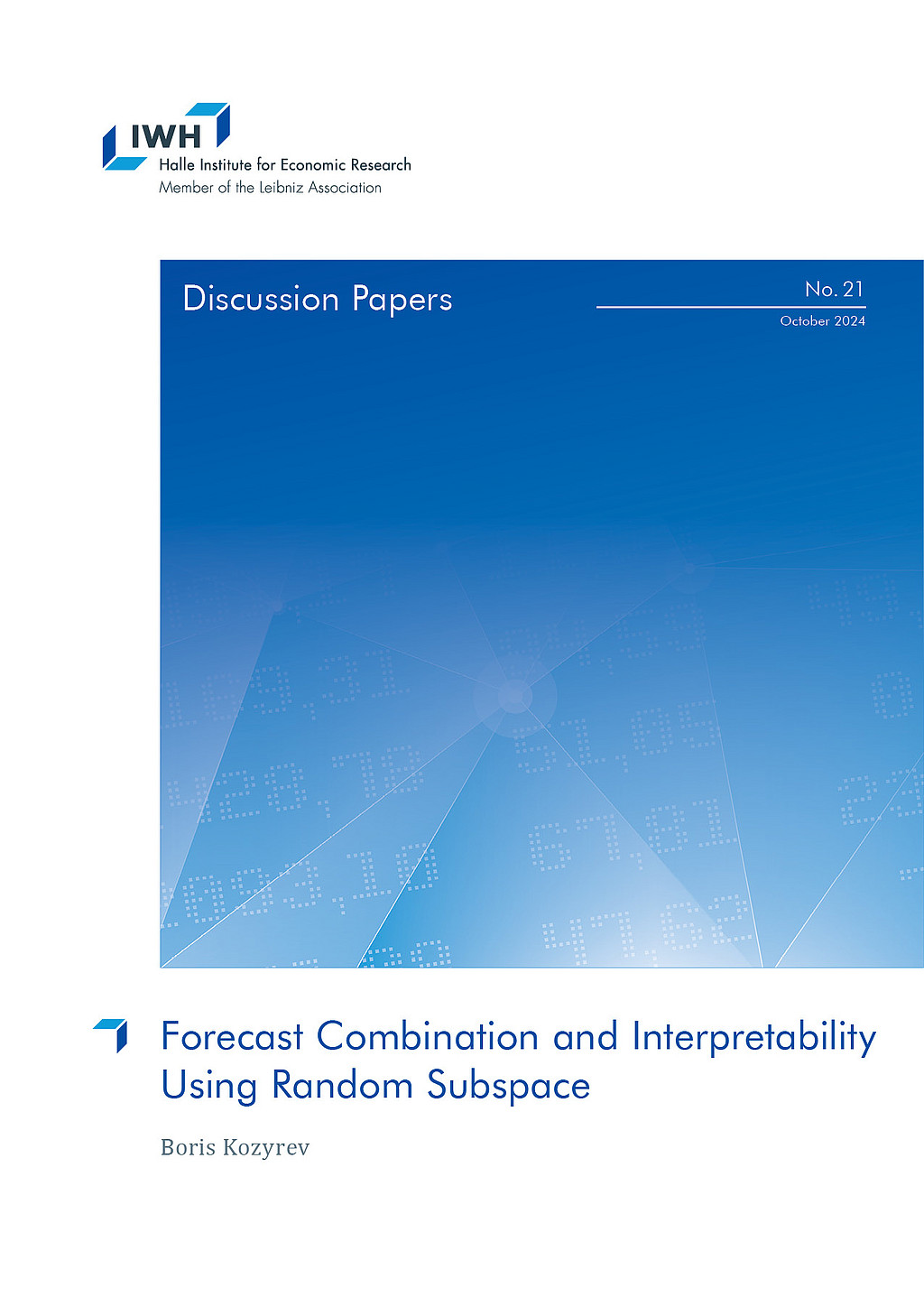
Forecast Combination and Interpretability Using Random Subspace
This paper investigates forecast aggregation via the random subspace regressions method (RSM) and explores the potential link between RSM and the Shapley value decomposition (SVD) using the US GDP growth rates. This technique combination enables handling high-dimensional data and reveals the relative importance of each individual forecast. First, it is possible to enhance forecasting performance in certain practical instances by randomly selecting smaller subsets of individual forecasts and obtaining a new set of predictions based on a regression-based weighting scheme. The optimal value of selected individual forecasts is also empirically studied. Then, a connection between RSM and SVD is proposed, enabling the examination of each individual forecast’s contribution to the final prediction, even when there is a large number of forecasts. This approach is model-agnostic (can be applied to any set of predictions) and facilitates understanding of how the aggregated prediction is obtained based on individual forecasts, which is crucial for decision-makers.





